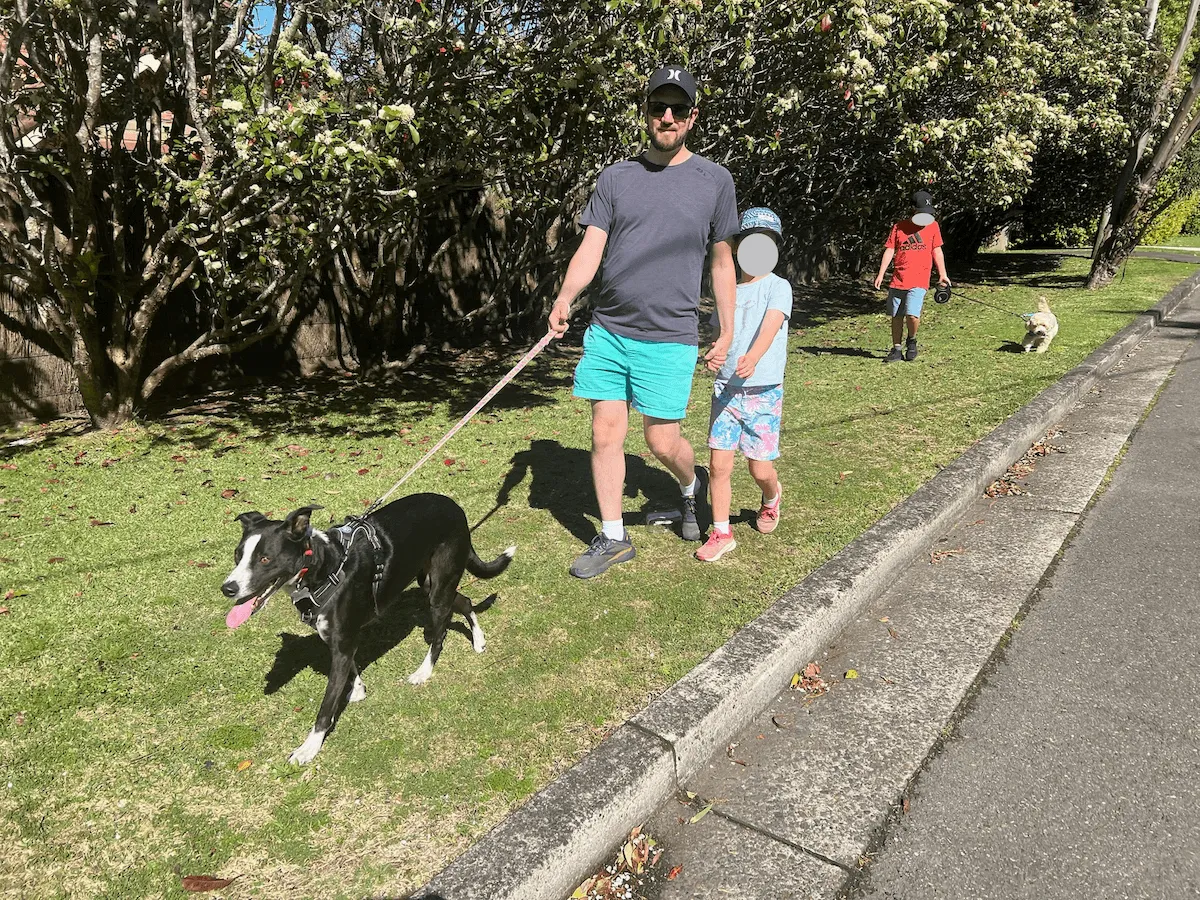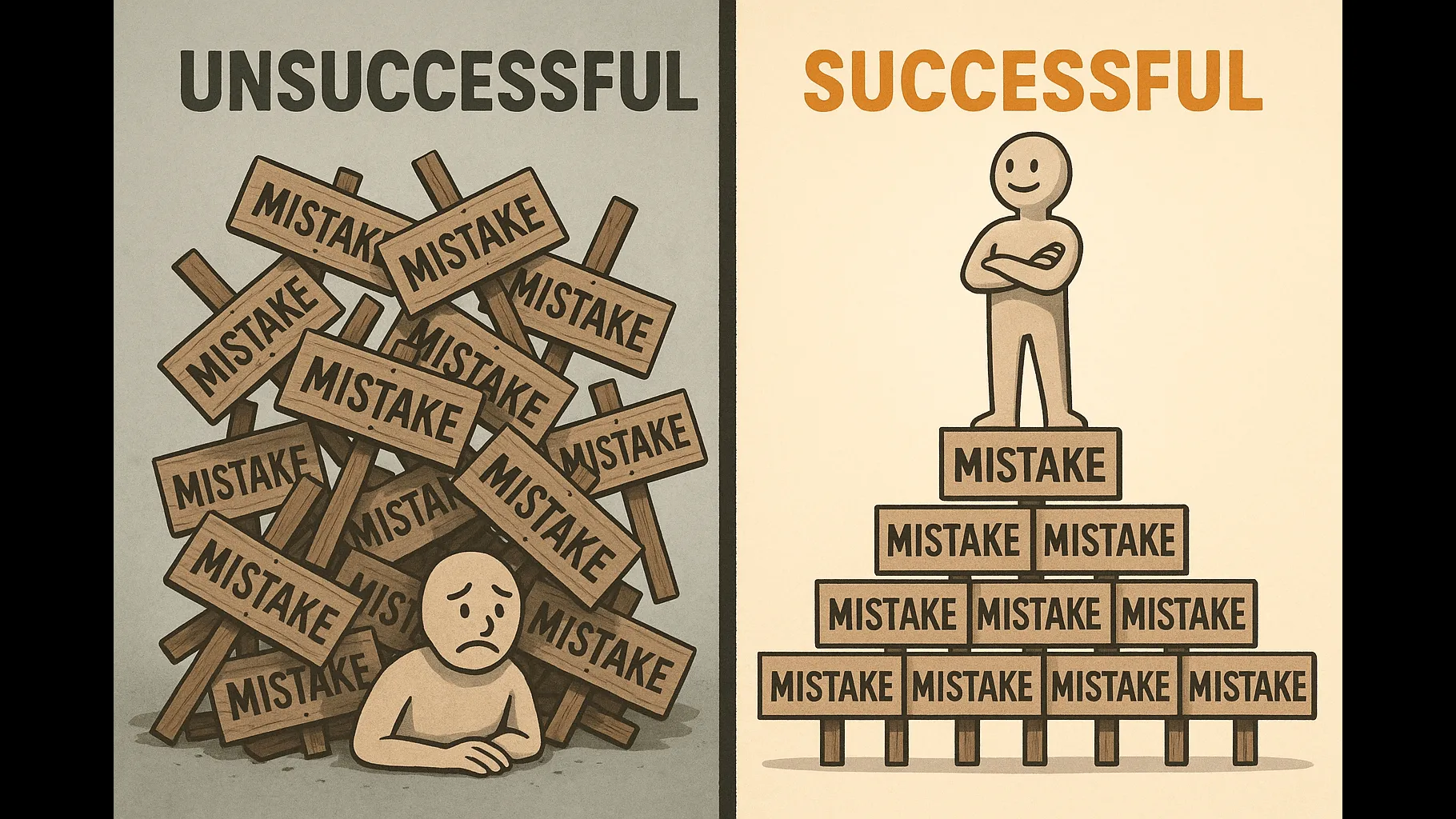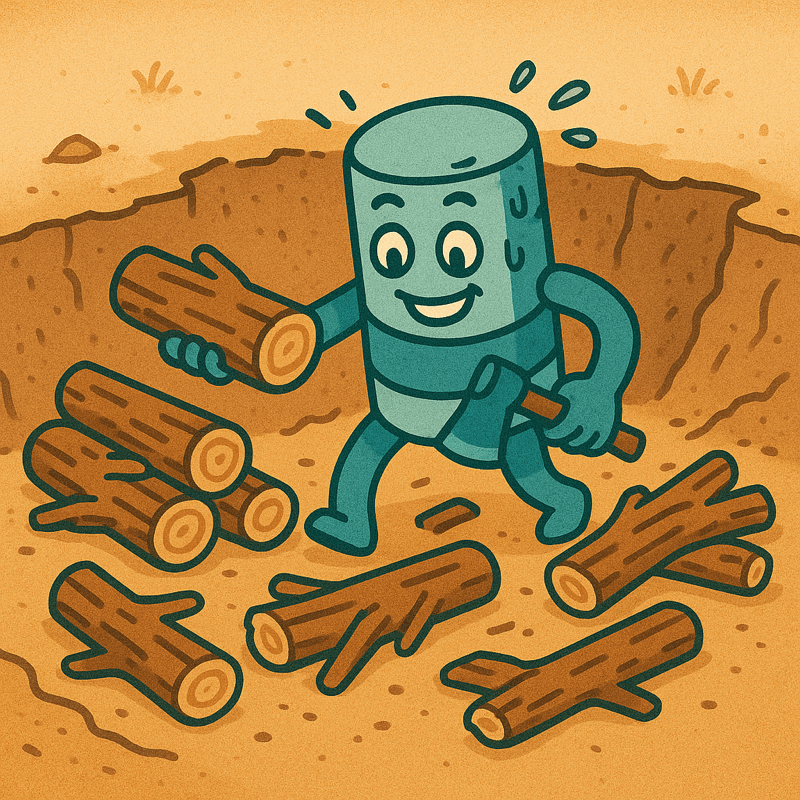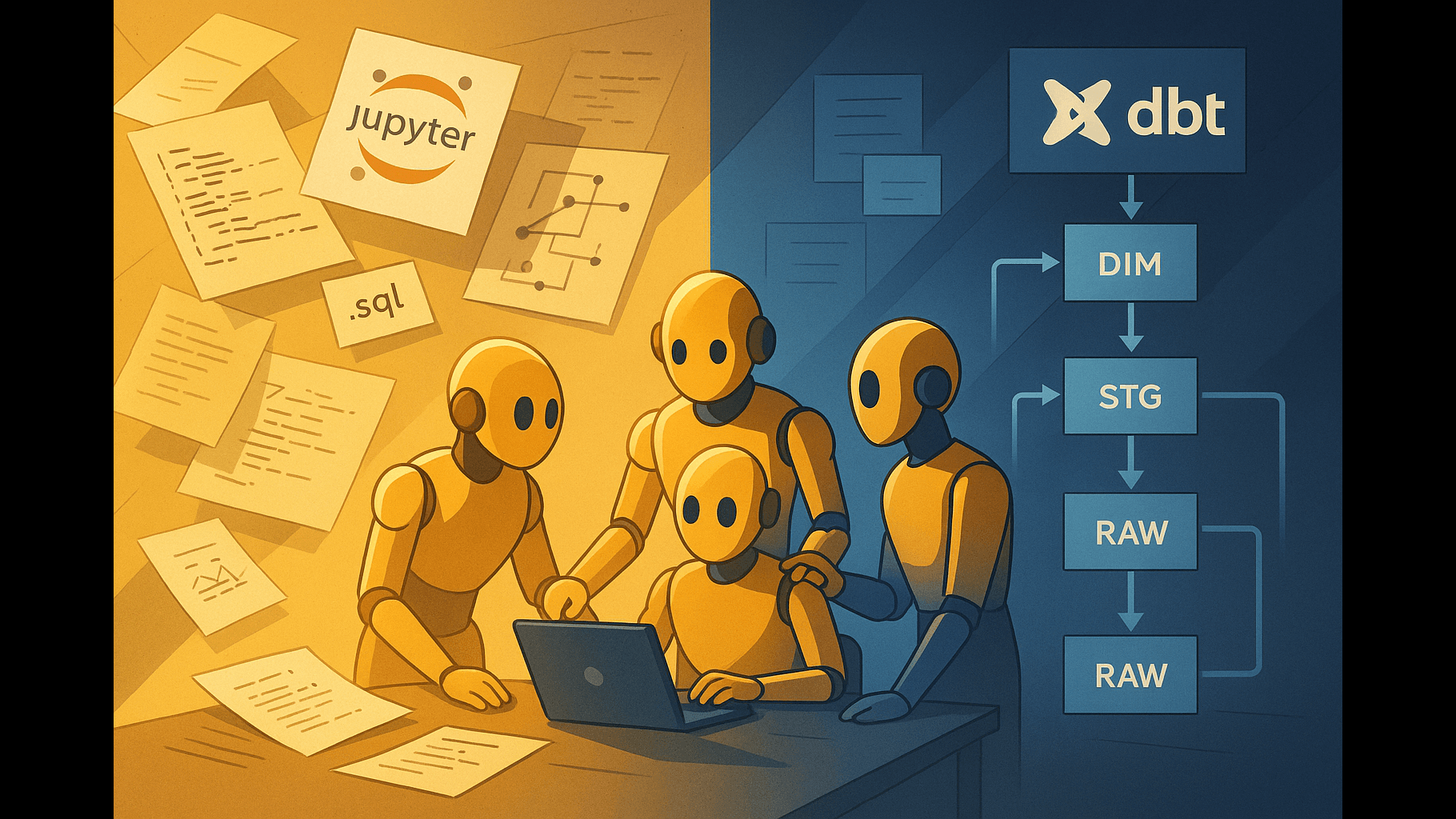· David Webb · founding · 11 min read
The Parent Guilt Tax Solo Founders Need To Discuss
School holidays, irregular hours, and 7 dog walks. The real struggle of balancing startup life with kids. No frameworks, just honesty.

My kids are peering over my shoulder right now. They’ve just finished jumping on the trampoline with their cousins. They want to know what I’m up to because I haven’t been on the laptop for a week.
I took the four of them out this morning. It’s 3pm now, laptop open, tapping away.
This is the reality of solo founding with kids. The guilt comes in waves, and right now, writing about it feels like a way to process it. If this resonates and is helpful for you then that’s a bonus.
The triple guilt nobody warns you about
School holidays are a double-edged sword. On one hand, it’s great. Quality time with the kids, adventures, beach days. On the other hand, there’s this constant struggle for attention between work and home. The guilt follows you everywhere…
Guilt that I’m not focused enough on my kids if I’m working. Guilt that I’m not working on my startup if I’m spending time with my kids.
My wife often talks about mum guilt. That pervasive feeling mothers carry about never doing enough, never being enough. As a dad building a startup while taking on more home duties, I’m experiencing my own version of it. Granted it’s delayed and not the same as mum guilt.
Last week we drove two hours to my in-laws’ place for five days. For two of those days, I locked myself away while the family went out adventuring. I felt guilty about it. But I was also trying to maximise the opportunity while my wife wasn’t working. If that’s when I can grab focused time, I take it.
The old me would never have done this. I used to be really good at work-life balance. I never checked emails on weekends. Never logged in on holidays. That was sacred family time.
It’s different now. And that’s hard. But it is what it is.
Then there’s the second layer of guilt. The first two weeks of launching howibuild.ai cost me progress on my main startup. I built this site to document the journey, to learn in public, to connect with other founders. But every hour I spent on it was an hour I wasn’t spending on the thing that’s supposed to pay the bills.
The irony isn’t lost on me. I’m already thinking about what I’d do differently with my next startup before I’ve even launched the first one. Is that bad? I don’t know. Maybe it’s just part of finding my way as a first-time solo founder.
The third layer? The hours themselves.
I tried to establish “regular hours” for startup work but have found it difficult to make it stick. The reality is it comes down to practicality whilst taking on more home duties than I otherwise would working full-time. If I can squeeze 2-3 hours in after the kids go to bed and stay up til midnight, that’s what happens. If it means working on a weekend, the days all blur into one anyway.
No regular hours. Just windows of opportunity and the constant question: Am I making the most of this time right now?
Prioritisation paralysis is exhausting
On an hourly basis, I’m torn between what to work on next.
Research. A bug. GTM strategy. Analytics. Branding. Validating assumptions. Infrastructure. Marketing. A feature. Sales. Talking to customers. Identifying partnership opportunities. Creating a plan. Engaging with community groups. Product positioning. Comparing notes with fellow founders. Establishing a social media presence.
The list goes on. It’s exhausting!
Here’s the thing: there are only a handful of things I’m really good at. The rest I either need to outsource, rely on AI, or postpone for now. I don’t have a team to delegate to anymore. And when you only get 2-4 hour windows at a time to work on something, you better maximise it and work on the most important thing.
To date, I definitely haven’t nailed that. I’m not going to beat myself up about it but it’s often front of mind.
In the product management world, prioritisation gets discussed in framework terms. And there are lots of them:
- RICE (Reach × Impact × Confidence) / Effort
- MOSCOW (must have, should have, could have, won’t have)
- Eisenhower matrix (importance vs urgency -> do, decide, delegate, delete)
- DVFS (desirability, viability, feasibility, strategic fit)
- Effort vs Value 2×2 matrix (my personal fave)
I’ve seen teams and product leaders debate these frameworks until the cows come home. The debates were intellectually interesting but they often didn’t result in the end outcome: doing less and focusing on the 1-2 things that actually matter.
As a solo founder, no framework is going to tell me whether I should reach out to that potential customer, work on product positioning or fix the bug. The frameworks don’t account for the emotional weight of each decision, the switching costs, the reality that I might only have two hours before I need to make dinner.
I suspect this is where grit, resilience, and focus make or break founders. The ability to make a decision, commit to it, and not second-guess yourself into paralysis.
Dog walking taught me more than frameworks ever could
Here’s where things get interesting. For the past six months, our family has been walking dogs and dog sitting.

My daughter has wanted a dog ever since she could talk. My son has wanted to make money ever since he could talk. Dog walking and dog sitting is the perfect fit.
We started with one customer at $15 per hour. Then demand started building. We had more requests than we could handle while juggling school, soccer, and music lessons. So we did what any good entrepreneur would do: we raised our prices. $20. Then $30. Now we’re at $40 for an hour of dog walking.
This week alone we have seven dog walks plus one doggy daycare session booked in, across three dogs. It’s more than we normally do, and it’s pushing the limits of our family schedule. It’s also not a forever thing.
But here’s what it is: exercise, family time, and a chance to role model work ethic while our kids build up their bank balances and learn to manage money.
$20 per hour won’t pay a Sydney mortgage. I’m under no illusions about that! But my kids, who are 8 and 10 now, are learning commitment. We go even when we don’t feel like it. They’re learning about supply and demand in real terms, not as an abstract concept in a textbook. They’re learning to care for dogs in preparation for eventually getting our own.
And I’m learning something too.
I used to think family time and work time were separate buckets. You prioritise one or the other. But dog walking is both. It’s family time that teaches entrepreneurship and there’s something special about building a micro business as a family.
When I feel guilty about not working, I remind myself: this counts. Teaching my kids to show up, to deliver on commitments, to understand pricing and demand. This is founder training wrapped up in quality family time.
Maybe prioritisation isn’t about choosing between family and startup. Maybe it’s about finding the overlaps where both get served?
The grit question keeps me up at night
Here’s what I don’t talk about: I have doubts.
That’s a weird feeling for someone whose default position is confidence. But building something from scratch, alone, with a minimal safety net, brings an unsettling uncertainty that I wasn’t prepared for. I believe I’ll be successful one day, but when? I have no idea…
I’m pre-launch. Pre-customer. Pre-revenue. Which means I’m pre-validation. All bet, no visible payoff or $$$ to show for my efforts yet. Every hour I invest is an act of faith that this will eventually work. That pressure is different from post-launch stress where you’re managing customers and support.
I suspect grit, resilience, and focus separate the founders who make it from those who don’t. If I’m super honest with myself, I’m not sure which camp I’m in yet. Grit and resilience are usually strengths of mine, I suspect focus is the thing I need to overcome.
When I’m on, when I’ve got my mojo back, it’s an awesome feeling! I’m in flow, making progress, shipping things. Those moments remind me why I’m doing this.
But there are other moments. Moments when the to-do list overwhelms me. When I look at my 2-4 hour window and think, “How am I supposed to move the needle with this?“.
Building a pile of mistakes
I have a vivid memory from early in my career. I was at the pub with a mentor who makes his living as a fractional CTO. He’d fly in to sort out organisational messes, reset the strategy, hire the permanent replacement, and move on to the next company.
He said something I’ve thought about for years.
The difference between successful people and unsuccessful people is that unsuccessful people are buried by their mistakes, whereas successful people are standing on top of a pile of their mistakes.

Maybe this is it. Maybe I’m building that pile right now?
Every decision to work on howibuild.ai instead of my main startup. Every late night that leaves me exhausted the next day. Every approach I tried and abandoned. Every hour I spent learning a tool I didn’t end up using.
Mistakes? Maybe. Or hopefully they’re the foundation I’ll be proudly standing on top of later.
I don’t have the answer yet. Ask me in a year.
The privilege of time and the pragmatist’s dilemma
Here’s what I do know: it’s a massive privilege to not be in a rush. To have some form of safety net. I have a lot to be grateful for.
I can take my time. Learn a bucket load. Selectively choose not just what to work on, but when to ship something. Not everyone has that luxury, and I don’t take it for granted.
The perfectionist in me will always want to make it better. One more feature. One more round of polish. One more validation check.
The pragmatist in me knows to aim for good enough, get it out there, get feedback, and iterate.
This tension plays out daily. Sometimes hourly.
When I finished up my corporate role, it took a good 1-2 months to unwind. I didn’t realise how burnt out I was until I stopped. The weight I’d been carrying became visible only in its absence.
Now I’m building something new, and I’m trying to do it differently. Not rushing. Not burning out. Building sustainably.
But sustainable doesn’t mean easy. It doesn’t mean without guilt. It doesn’t mean I’ve figured out the balance.
It just means I’m paying attention to the signals. When I need to rest, I rest. When I have energy and focus, I push hard. When the kids need me, I’m there (even if my mind is sometimes still half on the startup).
There’s no neat conclusion here
I’m not entirely sure what the key message is, or if there even is one.
Maybe it’s this: prioritising one thing doesn’t mean you don’t care about another thing. It just means you’re making a choice in this moment, with the information and energy you have available.
Maybe it’s that frameworks can’t solve human problems. RICE and MOSCOW and 2×2 matrices are useful tools for teams with resources. But they don’t address the guilt. They don’t help when you’re a solo founder trying to decide between getting a few more hours in to increase the chances of getting to ‘good enough’ or negotiating with your partner to take your kids to their next activity.
Or maybe it’s simply that the struggle is real.
To all the working parents out there: I see you! The guilt you feel when you’re not “enough” for your kids or your work. The exhaustion of context switching. The privilege and burden of having multiple things you care deeply about.
To all the solo builders and small business owners: I see you too. The paralysis of infinite options. The doubt that creeps in late at night. The mojo when it returns. The pile of mistakes you’re standing on, even if you can’t see it yet. The exhaustion…
You’re not alone in this.
If any of this resonates with you, I’d love to know what hits home. Head over to the Coming Up page and vote on what you want me to write about next. Or just drop me a note to say you’ve been there too.
Because sometimes the most valuable thing isn’t a framework or a strategy. Sometimes it’s just knowing someone else gets it.



